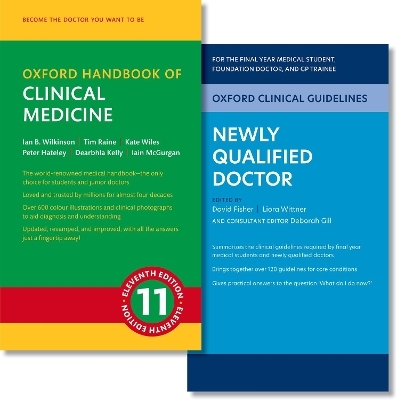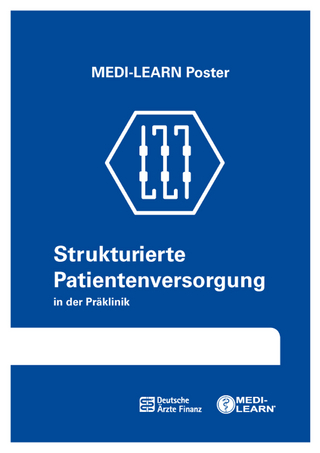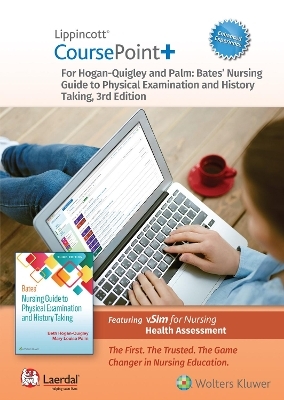
Oxford Clinical Guidelines: Newly Qualified Doctor and Oxford Handbook of Clinical Medicine pack
Oxford University Press
978-0-19-894829-2 (ISBN)
This great-value pack of two essential resources offers students and newly qualified doctors a definitive resource on clinical medicine.
Unique among medical texts, the Oxford Handbook of Clinical Medicine is a complete and concise guide to the core areas of medicine that also encourages thinking about the world from the patient's perspective, to develop a holistic approach to care with a passion for practice. The eleventh edition has been fully updated to reflect the latest changes in clinical practice and best management, filled with expert knowledge, practical advice, and reassurance, each page has been reviewed by a consultant and trainee.
Oxford Clinical Guidelines: Newly Qualified Doctor summarises the key clinical practice guidelines which all final year medical students and Foundation Year 1 and 2 doctors should know when managing common conditions. Logically organised by medical specialty, the reader can quickly familiarise themselves with the key principles of diagnosis and management at the appropriate level for beginning a new rotation on the wards. Each entry has been written by a trainee, reviewed by and approved by senior consultants.
Together these two pocketbooks provide a complete companion for the practice and philosophy of modern medicine and the clinical guidelines which underpin modern care ensuring you have everything you need at your fingertips whether on the go, in clinical sessions, or for revision.
David Fisher is a specialist in internal medicine at Clalit Healthcare Services in Israel. After finishing medical training at Barts and the London School of Medicine and Dentistry, he completed the Foundation Programme and Core Medical Training in the United Kingdom. During this time he was awarded a Master of Science degree in Endocrinology and Diabetes, also from Barts and the London. He has authored a number of papers relating to general medicine and it is his intention to specialise in endocrinology. Liora Wittner is currently a resident in family medicine at Clalit Healthcare Services in Israel. After studying medicine at University College London (UCL) Medical School, she completed the Foundation Programme at East and North Hertfordshire NHS Trust. She has a special interest in medical education, and enjoys producing educational materials, as well as leading bedside and practical clinical teaching. Ian Wilkinson is Professor of Therapeutics at the University of Cambridge and an Honorary Consultant Physician at Addenbrookes Hospital, Cambridge, UK Tim Raine is a Consultant Gastroenterologist at Cambridge University Hospitals NHS Foundation Trust, Cambridge, UK Kate Wiles is an Obstetric Nephrologist at Kings College London, London, UK Peter Hateley, Foundation doctor Year 2, Yeovil District Hospital, Severn Deanery Dearbhla Kelly is an academic nephrologist working as a postdoctoral research fellow at the Philip Kistler Stroke Research Center within the Department of Neurology at Massachusetts General Hospital Iain McGurgan, Clinical Fellow in Neurovascular Disease, John Radcliffe Hospital, University of Oxford
Oxford Clinical Guidelines: Newly Qualified Doctor
Part 1 Cardiology
1: Acute coronary syndromes
2: Acute heart failure
3: Aortic stenosis and mitral regurgitation
4: Atrial fibrillation
5: Chronic heart failure
6: Hypertension
7: Pericardial diseases
8: Stable angina
9: Transient loss of consciousness
Part 2 Care of the Elderly
10: Delirium
11: Dementia
12: Falls
13: Hip fractures
Part 3 Endocrinology
14: Adrenal insufficiency
15: Diabetic ketoacidosis
16: Hypercalcaemia
17: Hyperglycaemia
18: Hyperglycaemic hyperosmolar syndrome
19: Hyperthyroidism
20: Hypocalcaemia
21: Hypoglycaemia
22: Hyponatraemia
23: Hypothyroidism
24: Osteoporosis
25: Type 1 diabetes
26: Type 2 diabetes and diabetic foot problems
Part 4 Gastroenterology
27: Acute upper gastrointestinal bleeding and variceal bleeding
28: Coeliac disease
29: Crohn s disease
30: Gastro-oesophageal reflux disease and dyspepsia
31: Irritable bowel syndrome
32: Ulcerative colitis
Part 5 Hepatobiliary
33: Acute liver failure
34: Alcohol-related liver disease
35: Alcohol use disorders
36: Liver cirrhosis
Part 6 Mental health
37: Bipolar disorder
38: Depression
39: Eating disorders
40: Generalized anxiety disorder
41: Panic disorder
42: Post-traumatic stress disorder
43: Psychosis and schizophrenia
44: Self-harm
45: Violence and aggression
Part 7 Nephrology
46: Acute kidney injury
47: Chronic kidney disease
48: Hyperkalaemia
Part 8 Neurology
49: Acute encephalitis
50: Epilepsy
51: Headache
52: Meningitis
53: Metastatic spinal cord compression
54: Neuropathic pain
55: Parkinson s disease
56: Stroke and transient ischaemic attack
Part 9 Obstetrics and gynaecology
57: Antenatal care
58: Antepartum haemorrhage
59: Diabetes in pregnancy
60: Ectopic pregnancy and miscarriage
61: Hypertension in pregnancy
62: Intrapartum care
63: Nausea and vomiting in pregnancy
64: Pelvic organ prolapse in women
65: Postpartum haemorrhage
66: Sepsis in and following pregnancy
67: Thrombosis and embolism during pregnancy and the postnatal period
68: Urinary incontinence in women
Part 10 Paediatrics
69: Child maltreatment
70: Fever in under 5s
71: Neonatal infections
72: Paediatric asthma
73: Paediatric bacterial meningitis and meningococcal septicaemia
74: Paediatric bronchiolitis
75: Paediatric diabetic ketoacidosis
76: Paediatric gastroenteritis
77: Paediatric type 1 diabetes
78: Paediatric urinary tract infections
79: Acute oxygen therapy
Part 11 Respiratory
80: Asthma
81: Chonic obstructive pulmonary disease
82: Pleural effusion
83: Pneumonia
84: Giant cell arteritis
Part 12 Rheumatology and musculoskeletal
85: Gout
86: Hot swollen joint
87: Low back pain and sciatica
88: Osteoarthritis
89: Polymyalgia rheumatica
90: Rheumatoid arthritis
91: Spondyloarthritis
Part 13 Surgery
92: Preoperative care
93: Postoperative care
94: Blood transfusion
Part 14 Miscellaneous
95: Care of dying patients in the last days of life
96: Intravenous fluid therapy
97: Lower urinary tract symptoms in men
98: Venous thromboembolic diseases
99: Malaria
Part 15 Cancer guidelines
100: Brain and central nervous system cancers
101: Breast cancer
102: Childhood cancers
103: Gynaecological cancers
104: Haematological cancers
105: Head and neck cancers
106: Lower gastrointestinal cancers
107: Lung cancer
108: Sarcomas
109: Skin cancers
110: Upper gastrointestinal cancers
111: Urological cancers
Part 16 Professional guidelines
112: Capacity and consent
113: Confidentiality:
114: DNACPR
115: Fitness to drive
Part 17 Resuscitation
116: Advanced life support
117: Anaphylaxis and drug allergy
118: Bradycardia
119: Choking
120: Major trauma
121: Neutropenic sepsis
122: Sepsis
123: Tachycardia
Oxford Handbook of Medicine 11th edition
1: Thinking About Medicine
2: History and Examination
3: Cardiovascular Medicine
4: Chest Medicine
5: Endocrinology
6: Gastroenterology
7: Kidney Medicine
8: Haematology
9: Infectious Diseases
10: Neurology
11: Oncology and Palliative Care
12: Rheumatology
13: Surgery
14: Clinical Chemistry
15: Eponymous Syndromes
16: Radiology
17: Reference intervals
18: Practical procedures
19: Emergencies
| Erscheint lt. Verlag | 22.8.2024 |
|---|---|
| Verlagsort | Oxford |
| Sprache | englisch |
| Maße | 101 x 180 mm |
| Gewicht | 973 g |
| Themenwelt | Medizin / Pharmazie ► Medizinische Fachgebiete |
| Studium ► 2. Studienabschnitt (Klinik) ► Anamnese / Körperliche Untersuchung | |
| ISBN-10 | 0-19-894829-8 / 0198948298 |
| ISBN-13 | 978-0-19-894829-2 / 9780198948292 |
| Zustand | Neuware |
| Informationen gemäß Produktsicherheitsverordnung (GPSR) | |
| Haben Sie eine Frage zum Produkt? |
aus dem Bereich


